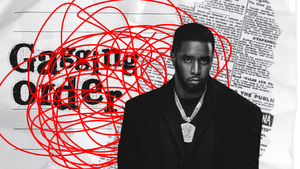A motion filed by Sean ‘Diddy’ Combs seeking a wide-ranging gagging order against everyone who has made allegations of sexual assault against him has been rejected by the New York court where he is fighting criminal charges. That ruling came as Combs embarked on yet another attempt at trying to get out of jail while he awaits trial, with a $50 million bail proposal that he says is “far more robust” than what was previously proposed.
The judge overseeing the gagging order request, Arun Subramanian, admits that the courts have an “affirmative constitutional duty” to ensure that Combs gets a fair trial under the Sixth Amendment of the US Constitution. However, “this essential Sixth Amendment requirement must be balanced with the protections the First Amendment affords to those claiming to be Combs’ victims”.
Ever since Combs was charged with sex-trafficking and racketeering in September, his lawyers have repeatedly complained about allegedly prejudicial statements in the media, which are variously coming from those working on the criminal investigation, the numerous people who have filed civil lawsuits against Combs, and the lawyers working on those lawsuits.
The musician wanted a court order stopping those people from speaking in public or to the media on the basis that failing to do so would make it impossible for Combs to get a fair trial. A filing requesting that gagging order said that the court has an obligation to “avoid the creation of a ‘carnival atmosphere’ in high-profile cases”.
In his ruling on that motion, Subramanian notes how Combs wanted “an order prohibiting prospective witnesses and their attorneys from making extrajudicial statements that he argues will substantially interfere with his right to a fair trial”. Under Combs’ request, “prospective witnesses” would basically be defined as “all those who claim to be victims”.
Prosecutors countered that that request was “extraordinary and beyond the purview” of the relevant rules. Subramanian agrees. He says that the legal authorities cited in Combs motion “don’t support a gag order applicable not only to trial participants, but also to any alleged victim and their lawyer”.
“Not all alleged victims will be participants in this case and a blanket restriction on their speech will silence individuals who may never have anything to do with the proceedings here”, the judge continues, seeing that as a violation of those individuals’ free speech rights under the First Amendment.
If nothing else, the judge adds, “less restrictive alternatives must be considered and rejected before imposing a restraint on speech”.
Another key objective of Combs’ lawyers since his arrest has been getting the musician bail so that he doesn’t have to await trial in prison. Initial requests for bail were denied with concerns expressed about Combs being a flight risk and because of the danger of witness tampering.
In his latest bid for bail, Combs proposes a $50 million bond secured on his Miami home and co-signed by his mother, sister, three adult sons and the mothers of two of his daughters. He would also agree to “full home detention” at his Miami property or a “suitable location in New York”, 24/7 monitoring, restricted access to internet and phones, and all visitors being subject to government approval.
Combs’ legal team say that the latest bail proposal is “far more robust than the previous proposal as well as other bail packages routinely approved by courts in this circuit”.
Combs continues to deny all the allegations that have been made against him in both the criminal prosecution and the numerous civil lawsuits.

